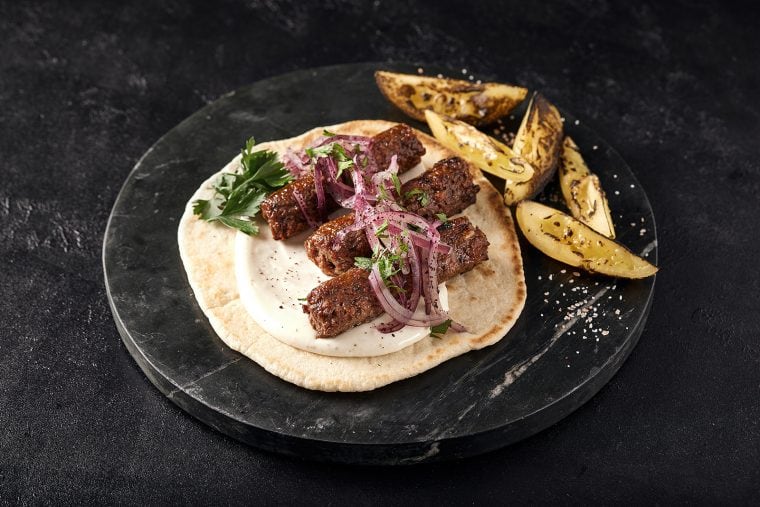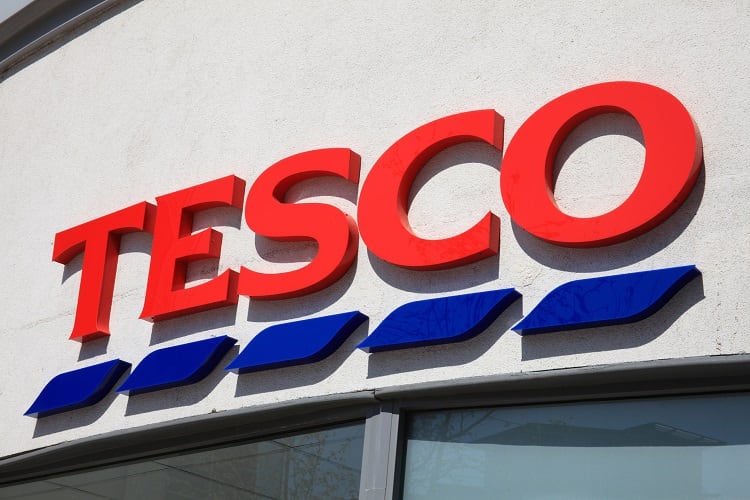The range, developed with feedback from leading chefs and butchers in Europe, includes a premium restaurant-style burger; an artisan sausage; a meaty puff pastry cigar designed with the hospitality industry in mind; a ‘versatile’ ground beef developed for high-quality restaurants and open flame grilling; and a lamb kebab developed for over two years ‘in stealth mode’.
Redefine Meat will extend the rollout of its first ‘New-Meat’ product range to Europe, with the US and Asia expected in 2022. The company also revealed that it will launch its first whole cut range later this year, following pilot-testing success.
“Each product in the range and the ones to follow are born from our understanding of meat at the molecular level, extensive R&D and technological innovation, which combined provides us the ability to create any meat product that exists today,” said Eshchar Ben-Shitrit, CEO and Co-Founder of Redefine Meat. “This has been critical to achieving a superiority in taste that honestly, we did not even expect, and the technological versatility to do what no other has done – replace every part of the cow with tasty plant-based meat.”
Redefine Meat recently secured $29 million in funding. It is also currently finalizing production of a first-of-its-kind large-scale factory housing both meat pilot-lines and Redefine Meat’s industrial-scale 3D Printers, which will produce New-Meat at scale to the Israeli market and beyond.
In July 2019, Redefine Meat unveiled what it called the world’s first plant-based steak produced using industrial digital manufacturing of plant-based ingredients. The firm says it uses soy and pea protein, as well as some other ‘standard plant-based ingredients’.
Created using the company’s novel and patented technology, Redefine Meat aims to produce vegetable-based food with the texture, flavour and appearance of beef. The company says this can be produced in the volume and cost required for large-scale commercial markets.
Expanding on the ‘huge strides’ made in its technology, Ben-Shitrit told FoodNavigator: “Since day one, the company’s goal has been to address two main barriers to adoption of Alt-Meat for your every day, mainstream meat lover: product quality and product variety. So when we talk about huge strides in technological development, it refers to the strides we’ve made in such a small space of times to significantly advance the taste and texture of meat, and develop our technology to a place where we can now replace the entire cow with Alt-Meat.”
These are enabled, he said, by developments within its proprietary technologies such as 3D printing, ingredient optimization, and use of AI & machine learning to deliver new alt-meat products faster based on consumer feedback.
“We use several innovative technologies and processes, but 3D printing is used within the development of all our New-Meat products,” he said. “We use a proprietary printing process, depositing Alt-Muscle (plant-Protein), Alt-Fat (plant-fat) and Alt-Blood (natural colors and flavors) simultaneously at a voxel-level to precisely replicate the complex structure of animal meat layer by layer.”
He said the same technology will be used to bring out its first ‘whole cut’ range later this year. “We will reveal specific details of the first whole cuts we will be releasing later this year, but the how is using our proprietary 3D printing process. This has long been considered the holy grail of alternative meat and why we believe we are best placed to be the first company to be able to create tasty plant-based alternatives for the entire cow, not just minced meat-based products.”




